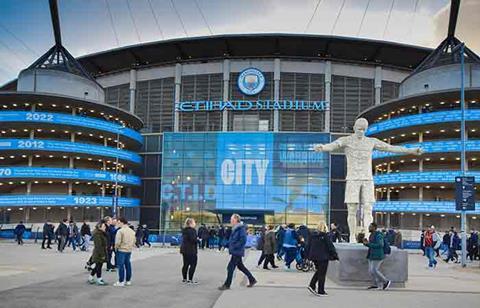
Something for the weekend: Analysis by KingCasinoBonus of Premier League football clubs has revealed the biggest pay gaps between players and staff, with Manchester City having the largest ratio at 237:1.
The online casino comparison service analysed player and staff wages, including positions in customer service, social media and analysts, across Premier League clubs for the 2024/25 season. It used data from Glassdoor and Spotrac to calculate wage ratios for each team and highlight the highest-earning players.
An analysis of 164 Glassdoor salaries revealed that Manchester City players earn an average of £8.7 million per year, compared to £36,900 for its support staff. Kevin De Bruyne has a salary of £20.8 million per year as one of the highest-paid Premier League players.
Additionally, 318 Glassdoor submissions found that Arsenal has the second-largest player-to-staff pay ratio, at 210:1. Its highest-paid player, Kai Havertz, receives £14.56 million annually, while the average staff member earns just £35,000 per year, 97.3% less than those on-field.
Meanwhile, Ipswich Town has the lowest player-to-staff pay ratio, at 12:1. The average Ipswich player earns £342,500 annually, while non-playing staff receive £28,100. Defender Axel Tuanzebe, the highest-paid player on the team, makes £1.04 million per year.
Brentford has the second-smallest player-to-staff pay ratio, at 31:1. Its highest-paid player, Ben Mee, earns £2.86 million annually, more than twice the average £1.33 million salary of a Brentford player. In contrast, the average staff member earns £42,500. While this is 96.7% less than the average player’s salary, it is still the highest non-player average wage in the Premier League.
A spokesperson for KingCasinoBonus said: “This gulf highlights the extreme financial dynamics of global football, where a few month’s wages for one player can equate to the annual salaries of numerous staff members. Such imbalances provoke necessary conversations about fairness and the value placed on those who keep the wheels turning behind the scenes. It’s crucial to recognise fair compensation.”
This is definitely food for thought and worthwhile making public, especially as the government looks to improve pay inequality by bringing forward the draft Equality (Race and Disability) Bill, where more employees will have a formal right to fair pay.
















